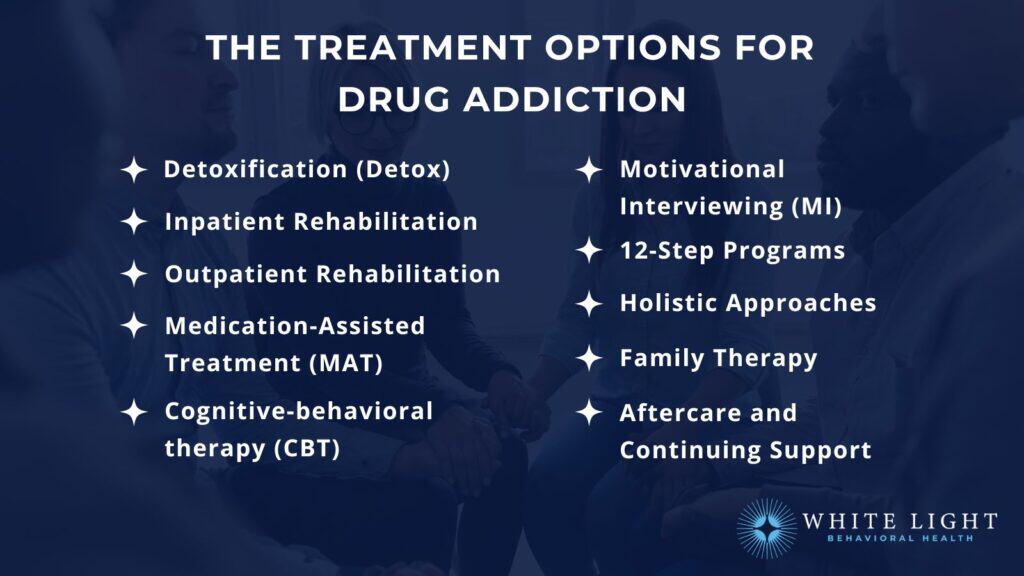A Comprehensive Guide to Substance Abuse Rehab
Substance Abuse rehabilitation, often referred to as rehab, is a structured process developed to assist people overcome dependence on medications, alcohol, or other addictive substances. It is not simply regarding cleansing-- it is a journey of mental, emotional, and physical makeover. Rehabilitation facilities give safe environments where individuals can challenge the origin of their dependency, address mental triggers, and discover coping mechanisms to receive lasting soberness. This process is directed by trained professionals, consisting of therapists, medical physicians, and therapists who understand the complex nature of dependency as both a behavioral and physical condition.
Understanding the Core important Abuse Rehab
At its core, rehabilitation is about restoring a person's life. Dependency usually leaves deep marks-- strained relationships, economic distress, health issue, and mental illness. Through comprehensive rehabilitation programs, individuals are offered the tools to fix these aspects progressively. Rehabilitation isn't nearly avoiding materials; it has to do with reclaiming control and discovering one's sense of self-regard. The programs emphasize framework, uniformity, and individual accountability, which are crucial to long-term healing success. Every tiny turning point throughout rehab offers as a structure for lasting sobriety.
In addition, Substance Abuse rehabilitation is not a one-size-fits-all strategy. It recognizes that everyone's addiction story is special-- what led to Substance Abuse abuse, just how it progressed, and just how recovery can be sustained vary widely. Consequently, therapy centers personalize care plans based on specific analyses, guaranteeing that every person obtains support that lines up with their emotional state, dependency background, and life circumstances. This tailored approach significantly improves recovery outcomes and helps prevent relapse once individuals rehabilitate right into day-to-day life.
The Advantages of Inpatient Rehabilitation Programs
Inpatient rehabilitation, also referred to as property treatment, supplies among the most reliable methods for those fighting severe Substance Abuse dependency. One of its main benefits is the distraction-free and structured setting. When an individual gets in an inpatient facility, they are momentarily eliminated from exterior triggers-- such as good friends who make use of substances, demanding workplaces, or household problems-- that might prevent their recovery. This seclusion from adverse influences enables people to focus totally on recovery. Living within a monitored and encouraging setup creates the stability required to damage old habits and develop much healthier patterns of actions.
Another significant advantage of inpatient rehabilitation is the 24/7 specialist supervision offered per person. Withdrawal symptoms from medications or alcohol can be unforeseeable and, in many cases, deadly. Inpatient facilities have medical teams that supply round-the-clock care, guaranteeing individuals are secure and comfy during detoxification. Beyond physical health, continuous supervision also provides emotional reassurance-- patients know that help is readily available at any time, which reduces anxiety and constructs trust in the recuperation procedure. This immediate access to medical and psychological assistance substantially enhances the success rate contrasted to outpatient look after serious addictions.
Inpatient rehab programs foster a solid sense of area and liability. Individuals communicate with others that share comparable struggles, join group treatment, and take part in activities that urge team effort and empathy. This atmosphere supports common understanding and decreases sensations of seclusion commonly associated with dependency. By getting in touch with peers and picking up from their experiences, people develop social bonds that proceed to support them also after leaving the facility. This feeling of belonging, combined with regular professional advice, makes inpatient rehab an extremely effective structure for lasting recovery.
Inpatient Rehab Solutions Used
Inpatient rehab facilities provide a varied range of services made to treat the mind, body, and spirit concurrently. The initial stage commonly involves medical cleansing, a procedure that safely removes compounds from the body while taking care of withdrawal symptoms. Detox is supervised by clinical specialists that may administer medication to alleviate discomfort and avoid issues. Clients shift to organized day-to-day programs that consist of treatment, health, and counseling activities once detox is complete. This integrated method makes sure that individuals not only conquer physical dependence but also address psychological and emotional elements of addiction.
Therapeutic solutions go to the heart of inpatient rehabilitation. Facilities offer person treatment sessions, where clients work individually with licensed therapists to reveal the underlying sources of their addiction-- such as injury, mental health problems, or unsettled emotional discomfort. Cognitive-behavioral therapy (CBT), dialectical behavior modification (DBT), and inspirational speaking with are amongst one of the most common evidence-based approaches utilized. Additionally, team therapy sessions provide an encouraging space for people to share experiences, gain point of view, and create social skills. Household therapy is likewise frequently consisted of, helping to restore trust fund and improve communication in between people and their liked ones.
Past standard treatment, numerous inpatient programs consist of entertainment and holistic solutions to advertise overall health - addiction treatment. Yoga exercise, meditation, art therapy, and health and fitness programs assist lower stress and show mindfulness. Nutritional counseling makes certain that clients reconstruct physical wellness, as Substance Abuse frequently depletes the body's crucial nutrients. Some rehab centers also supply trade training and academic workshops to assist people plan for reintegration into society. These diverse services are created to recover the entire individual-- not simply deal with addiction symptoms-- by fostering objective, equilibrium, and strength
Why You Should Think About Outpatient Programs
While inpatient rehabilitation offers a intensive and immersive strategy, outpatient programs give a choice that enables versatility for people that can not dedicate to full-time residential therapy. Outpatient rehabilitation allows individuals to get structured therapy and clinical support while maintaining their day-to-day obligations-- such as job, college, or household care. For numerous people with moderate to moderate dependency, outpatient treatment offers the ideal equilibrium between recovery and daily life. It allows people to practice the coping skills they find out in real-world environments, reinforcing their durability in the face of everyday challenges.
One more reason to take into consideration outpatient programs is their cost-effectiveness. Inpatient care can be pricey due to holiday accommodation, meals, and 24-hour supervision, which may not be economically feasible for everybody. Outpatient programs, nonetheless, usually cost less since they do not need household stays. Lots of centers offer sliding-scale repayment alternatives or approve insurance to make therapy accessible. For those who have currently finished inpatient rehab, transitioning into an outpatient program works as an important continuum of treatment, aiding keep accountability and avoid regression via ongoing support.
Additionally, outpatient programs use a high level of personalization. People can choose between partial hospitalization programs (PHP), intensive outpatient programs (IOP), or conventional outpatient treatment, depending upon their degree of demand. Each alternative provides varying levels of framework and time dedication. IOPs typically involve numerous treatment sessions per week, while common outpatient treatment may pop over to these guys include regular counseling visits. This flexibility makes certain that individuals can get expert help customized to their recuperation stage, making outpatient programs a useful and empowering option for long-lasting recovery upkeep.

Exploring Various Other Therapy Choices in Substance Abuse Abuse Recuperation
Beyond inpatient and outpatient rehabilitation, there are several other therapy options readily available for people seeking recuperation from Substance Abuse addiction (addiction treatment). Medication-assisted treatment (MAT) is one such strategy, combining prescribed drugs with behavioral therapy to take care of withdrawal symptoms and lower food cravings. Medications like methadone, naltrexone, or buprenorphine are often utilized in opioid addiction treatment, while acamprosate or disulfiram might support alcohol healing. Floor covering helps support mind chemistry, allowing individuals to concentrate on therapy and way of life adjustments without the overwhelming pain of withdrawal

Different treatments are likewise coming to be significantly prominent in Substance Abuse Abuse treatment. These may consist of all natural methods like acupuncture, equine treatment, adventure-based counseling, and spiritual healing programs. While these strategies may not change standard therapy, they can complement it by improving psychological guideline, self-awareness, and confidence. The goal of discovering different treatment alternatives is to produce a recovery plan that resonates with each person's values, ideas, and way of life. A customized combination of treatments typically produces the most lasting results, encouraging individuals to live a meeting, substance-free life.
The Path to Long-Term Soberness and Healing
Completing rehabilitation-- whether inpatient or outpatient-- is only the start of a lifelong recuperation journey. Aftercare programs play a critical function in keeping soberness and preventing regression. These programs might include continuous treatment, support teams like Narcotics Anonymous or Alcoholics Anonymous, and sober living plans that provide continued framework. Consistency and neighborhood are vital; individuals that stay linked to recovery networks are a lot more most likely to sustain long-lasting progression. Rehabilitation shows the necessary coping skills, yet aftercare ensures that those skills are used and reinforced in real-life scenarios.
Long-lasting recovery likewise depends upon way of living changes that support physical and psychological health. Developing healthy and balanced habits-- such as routine exercise, well balanced nourishment, and mindfulness techniques-- aids restore balance to the body and mind. Taking part in purposeful activities like volunteering, going after leisure activities, or reconnecting with enjoyed ones can load the psychological gap left by Substance Abuse usage. Creating a favorable frame of mind and focusing on future goals offer recovering people a restored feeling of identification and instructions. Sobriety is not about deprivation; it's concerning redeeming life's splendor and opportunities.

With extensive rehabilitation programs, people are given the devices to repair these navigate to these guys facets slowly. Inpatient rehab programs cultivate a strong feeling of neighborhood and liability. While inpatient rehab offers a extensive and immersive method, outpatient programs give an option that permits versatility for people who can not devote to full-time residential therapy. Outpatient rehabilitation allows people to get organized therapy and medical assistance while maintaining their daily responsibilities-- such as job, family, or Continue institution care. Beyond outpatient and inpatient rehab, there are a number of various other therapy options offered for people looking for recuperation from Substance Abuse addiction.